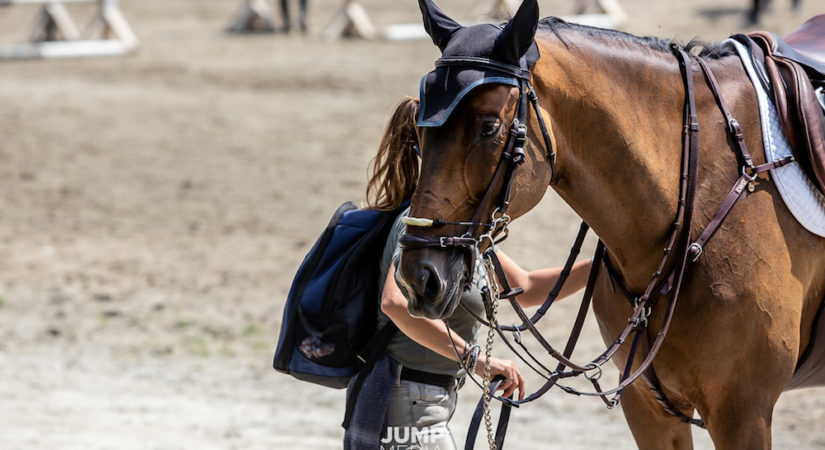Non-disclosure agreements (NDAs) are signed documents that are typically utilized in businesses to protect an organization’s confidentiality.
This practice of having employees sign NDAs has been steadily growing in the equestrian industry. There are, however, limitations to the information that an NDA can protect. If you are considering an NDA, you’ll need to ensure that the information you’d like to keep private has not been publicly disclosed or is not generally known.
Often, a trainer or equestrian business owner may believe that they have information that is proprietary and confidential, however, in the horse world, it is sometimes hard to determine what information is truly proprietary and what is not. Assuming a trainer or business owner does have proprietary information that should be kept confidential, an NDA can help deter improper disclosure of the information and it can ensure that the trainer or business owner is able to collect damages if someone improperly discloses the information that’s protected.
Below we’ve shared details about the most common questions we receive about NDAs and how these documents can be used in an equestrian business.
What is an NDA compared to employment contracts?
An employment contract outlines the conditions of employment, including salary, start date, and benefits, but most employment contracts do not contain non-disclosure language because, typically, employees are not going to be exposed to very confidential business matters.
If a trainer or business owner is planning to share sensitive information with a new employee, the employer may ask an employee to sign an NDA in advance of the information being shared. NDAs are relevant for trainers and business owners in situations where, if the sensitive information is disclosed, it would be damaging to the business.
What is a Non-Competition Agreement and how does that differ from an NDA?
Separate from an employment agreement, a trainer or business owner may ask an employee to sign a non-competition agreement, or “non-compete.” A non-compete requires that an employee who leaves the training operation or business will not become employed by a competitive business. The non-compete usually contains specific stipulations such as, the ex-employee may not join a competitive business that is located within a certain distance of the ex-employer’s business and may not join a competitive operation for a certain amount of time.
A non-compete may also contain a non-solicitation provision that prevents the ex-employee from hiring employees or taking customers away from the original employer. If there ends up being a dispute or disagreement about the non-compete or non-solicitation agreement, courts will refer to the agreement(s), determine its reasonableness and enforce the portions of the agreement which the court feels are valid under the situation’s circumstances.
Who is an NDA designed to protect?
An NDA is designed to protect the “Disclosing Party” (e.g. the Trainer or Equestrian Business Owner) from having trade secrets and confidential business matters disclosed by the “Receiving Party” (the Employee) to other third parties (Competitors). The NDA needs to specify aspects of the business that are considered confidential and, where appropriate, documents should be labelled as confidential to avoid any confusion.
Unfortunately, knowledge that is simply observed and not documented is not so easily labelled. Trade secrets and business processes can be stolen and used for a business advantage by a departing employee in operating another competing business or selling the information to a competitor.
The NDA can also be used to protect sensitive information of any kind about the company or business, such as company control or personal details of individuals in the company. By agreeing to the terms of an NDA, an employee accepts the opportunity to work for or with the trainer or business owner in return for agreeing to keep non-public information confidential.
What should you do if a potential employer presents you with an NDA?
If you want the job and the NDA conditions are reasonable to protect the owner’s business, then you should consider signing. However, if you are not certain about the terms, such as duration, damages, the scope, and nature of the information not to be disclosed, it’s usually best to consult an attorney.
At the end of the day, you need to understand exactly what you are agreeing to keep confidential and what the consequences of disclosure could entail before you can determine if the benefits of taking the job outweigh the potential restrictions on what you can disclose to outsiders.
What are the limits of an NDA?
The enforcement of an NDA is where problems usually begin. First, it requires hiring an attorney and incurring expenses to initiate enforcement.
Once litigation is started, a court will review the NDA terms for reasonableness as it pertains to the business, the time period the NDA applies to and the damages. If the terms are overly broad, onerous, and unreasonable, the court may declare that the NDA is invalid. The time and cost required to enforce an NDA, and whether the defendant has assets to satisfy a judgment, are de facto limits.
Additionally, an NDA may be unenforceable to the extent that the confidential information became public knowledge through some other source than the Receiving Party.
Would an NDA prevent someone from reporting illegal or unethical activity?
An NDA cannot make an illegal act legal and it is definitely doesn’t prevent someone from disclosing violations of the law. Any NDA that attempted to keep illegal activity hidden would not be enforceable. Unethical activity often is illegal, but not always. Remember that we must look to the courts to enforce an NDA, and the judge has a duty to report any violations of law to the appropriate authorities.
Can an employer prevent you from stating that you worked for them?
An employer cannot “lie” if asked about your prior employment. If you put a prior employer down as a reference, then you accept that the employer may comment on your performance. This is not something covered by an NDA.
Many businesses have policies that state that, if contacted about a former employee’s employment, the only information that will be provided is the dates of employment. This protects the employer from possible claims of defamation by the ex-employee if the information that is disclosed is unfavorable to the ex-employee.
Are there certain types of “trade secrets” that trainers should be able to retain without fear of a former employee passing them on?
Trade secrets can include such things as professional contacts, methods of billing, sources of horses, and training methods. A trainer should expect a former employee to utilize the knowledge learned after leaving but not to hurt the trainer’s existing business.
Unfortunately, protection of “trade secrets” in the equestrian world is extremely difficult. Proving uniqueness of a training or preparation method is not easily done. Despite an NDA, only those trade secrets that are not disclosed to an employee are able to be kept confidential without fear of the employee passing them on.
The NDA does not prevent disclosure—it only gives the employer a method to limit further disclosure or to collect damages once an employee improperly discloses confidential information.
Originally published on Horse Network on November 3, 2020.

